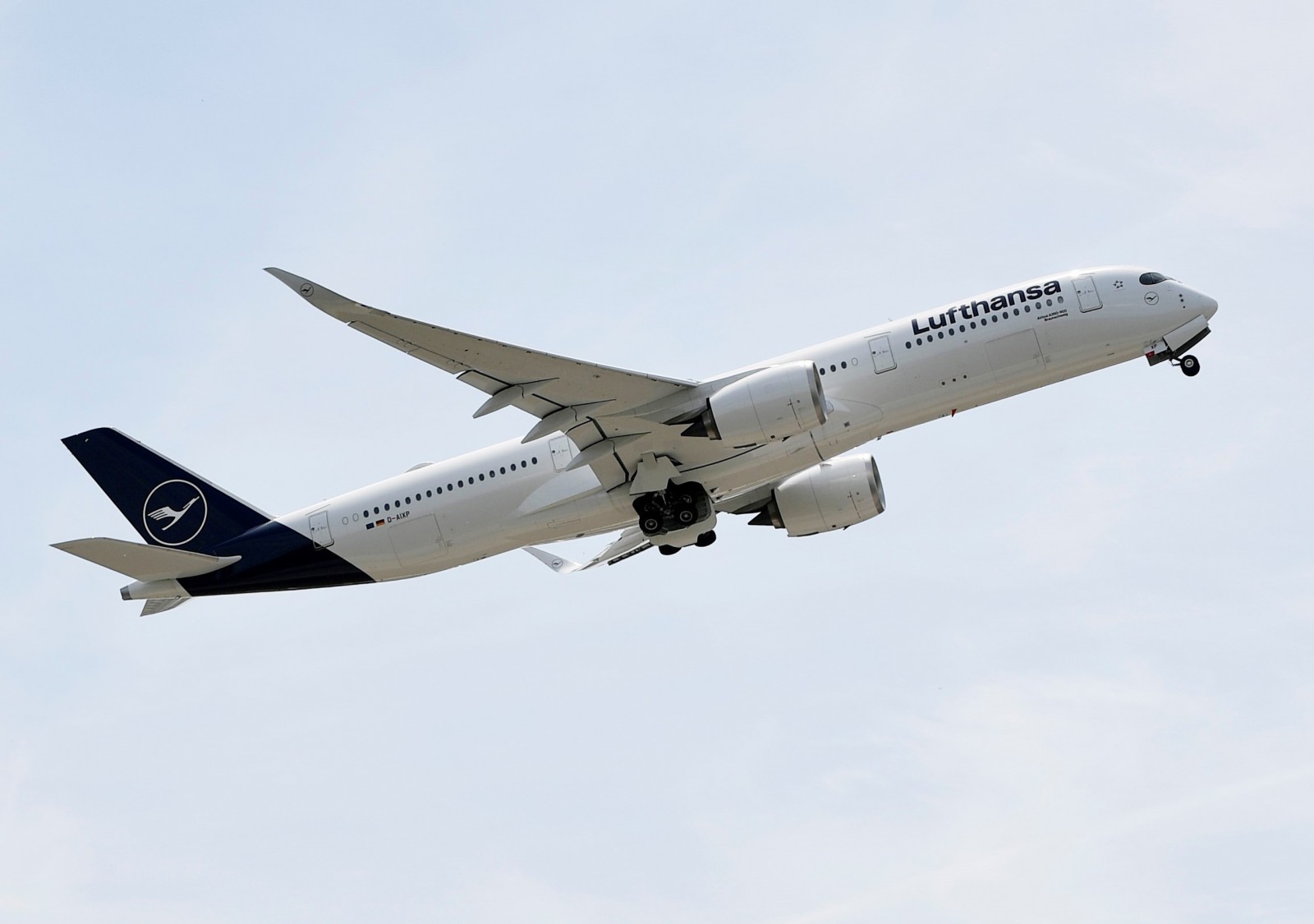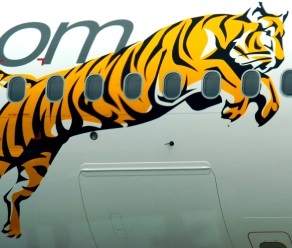Lufthansa to operate Antarctica supply charters for science
28 January, 2021
5 min read
By joining our newsletter, you agree to our Privacy Policy


Lufthansa is to operate Antarctica charters for science this weekend to circumvent COVID ravaged South Africa.
Germany, like many countries, has a long-running history of maintaining Antarctic research stations such as Neumayer III, facing the South Atlantic between South America and Africa.
Usually, its crew changes and supplies are handled via Cape Town, where personnel board a Russian-operated Ilyushin IL-76 to fly to Novo Airbase in Antarctica - a four- hour journey.
But as South Africa is currently considered to be a Covid risk-country, German Alfred-Wegener-Institute for polar and marine sciences (AWI), operating the country’s Antarctic presence, has had to look for alternative logistics.
Lufthansa has been chartered to operate a unique pair of flights starting this Sunday to bring new crews for the station and fresh researchers to the Falkland Islands for transfer to the polar vessel “Polarstern” and take others home.
Lufthansa’s Airbus A350-900 registered D-AIXP will leave Hamburg on Sunday evening local time for a non-stop flight to RAF Mount Pleasant on the Falkland Islands where the transfer will take place. Flight time over the distance of about 13,700 km is estimated to be 15 hours and ten minutes, with an arrival planned for Monday morning local time.
READ: Qatar Airways A350 is the ultimate Airbus aircraft.
As can be expected, logistics and preparations for flight LH2574 were hugely complex and started in earnest in November. One of the main concerns was the prevention of any risk of Covid infections, both for the AWI passengers as well as the Lufthansa crew.
“AWI required two weeks of quarantine for their own people and for ours before departure,” explains Thomas Jahn, Lufthansa A350 fleet captain, and Falkland project leader, in talking to Airlineratings.com
To find volunteers among their crews, Lufthansa had internally asked for anyone willing to go and got an overwhelming response of over 600 applicants in only 48 hours. Even despite the fact this adventurous-sounding trip promises a lot of lockdown and very little fun – as the crews are required to stay in hotel quarantine also at their destination for the full two-and-a-half days on the islands.
Eighteen crew members were selected and went into quarantine, together with the 92 assigned AWI passengers on January 16 in a northern German hotel they fully occupied.
“You don’t get out of the hotel, but you are able to intensively bond with Antarctic researchers, that’s an incentive in itself for many crew members,” says Jahn. For the second round trip planned for March 30th, there will be a new selection process.
Lufthansa’s aircraft options for this rare mission were limited. “We currently only have the A350-900s in Munich for long haul, as all our A340-600s and A380s are in long-term storage,” explains Jahn.
“The Boeing 747-8 was not suitable due to its higher operating costs, fuel burn, and subsequent CO2 emissions,” the fleet pilot reveals. “With the A350 we need around 90 tons of fuel to reach the Falklands, while the A340-600 would have used up 140 tons – and the Boeing 747-8 about 160 tons.”
"Of course traveling as climate-friendly as possible was another concern of the scientists, AWI fully compensates the CO2 emissions for all official air travel through German offsetting portal Atmosfair. Besides passengers and crew plus their luggage and equipment, the flight will also carry spare parts for ship and station plus fresh groceries for both.
“But we still have a bit of spare payload capacity remaining,” says Thomas Jahn, who estimates a take-off weight of about 260 tons, eight tons less than the A350s maximum take-off weight. This would theoretically enable an endurance of almost 18 hours.
An interesting topic was route planning. Originally it called for a southbound track alongside Africa’s west coast before crossing the South Atlantic. After actual, instead of statistical, wind data were taken into account recently, the route was altered, now crossing the ocean first before heading south along the South American east coast. A fuel stop, which would have been possible on islands such as the Canaries, Cape Verde, or Ascension (where the RAF A330 transport-tankers stop on the way to the Falklands), was never an option due to pandemic requirements by AWI.
 And there was even a minor political and diplomatic row emerging by designating alternate airports for the trip. Lufthansa had requested permissions from Argentina, which tried to use this as a propaganda coup, its foreign ministry falsely claiming this represented German acceptance of Argentina’s territorial claims over the Islas Malvinas, as they are called there.
That fuelled the initial decision to designate Punta Arenas in Chile as the first alternate, but now Ushuaia in Argentina takes this role. For this port city in Tierra del Fuego, there is a plan B: If for any reason RAF Mount Pleasant can’t accommodate the Lufthansa flight, it would go to Ushuaia instead and the vessel “Polarstern” would do the pick up there. In any case, Thomas Jahn expects a smooth journey to the far south and hopes his crew will at least get some good glimpses of the Falkland Islands from their bus to the quarantine hotel - if not anything more.
And there was even a minor political and diplomatic row emerging by designating alternate airports for the trip. Lufthansa had requested permissions from Argentina, which tried to use this as a propaganda coup, its foreign ministry falsely claiming this represented German acceptance of Argentina’s territorial claims over the Islas Malvinas, as they are called there.
That fuelled the initial decision to designate Punta Arenas in Chile as the first alternate, but now Ushuaia in Argentina takes this role. For this port city in Tierra del Fuego, there is a plan B: If for any reason RAF Mount Pleasant can’t accommodate the Lufthansa flight, it would go to Ushuaia instead and the vessel “Polarstern” would do the pick up there. In any case, Thomas Jahn expects a smooth journey to the far south and hopes his crew will at least get some good glimpses of the Falkland Islands from their bus to the quarantine hotel - if not anything more.
 And there was even a minor political and diplomatic row emerging by designating alternate airports for the trip. Lufthansa had requested permissions from Argentina, which tried to use this as a propaganda coup, its foreign ministry falsely claiming this represented German acceptance of Argentina’s territorial claims over the Islas Malvinas, as they are called there.
That fuelled the initial decision to designate Punta Arenas in Chile as the first alternate, but now Ushuaia in Argentina takes this role. For this port city in Tierra del Fuego, there is a plan B: If for any reason RAF Mount Pleasant can’t accommodate the Lufthansa flight, it would go to Ushuaia instead and the vessel “Polarstern” would do the pick up there. In any case, Thomas Jahn expects a smooth journey to the far south and hopes his crew will at least get some good glimpses of the Falkland Islands from their bus to the quarantine hotel - if not anything more.
And there was even a minor political and diplomatic row emerging by designating alternate airports for the trip. Lufthansa had requested permissions from Argentina, which tried to use this as a propaganda coup, its foreign ministry falsely claiming this represented German acceptance of Argentina’s territorial claims over the Islas Malvinas, as they are called there.
That fuelled the initial decision to designate Punta Arenas in Chile as the first alternate, but now Ushuaia in Argentina takes this role. For this port city in Tierra del Fuego, there is a plan B: If for any reason RAF Mount Pleasant can’t accommodate the Lufthansa flight, it would go to Ushuaia instead and the vessel “Polarstern” would do the pick up there. In any case, Thomas Jahn expects a smooth journey to the far south and hopes his crew will at least get some good glimpses of the Falkland Islands from their bus to the quarantine hotel - if not anything more.
Next Article
3 min read
Virgin gets nod for Tiger deal

Get the latest news and updates straight to your inbox
No spam, no hassle, no fuss, just airline news direct to you.
By joining our newsletter, you agree to our Privacy Policy
Find us on social media
Comments
No comments yet, be the first to write one.

